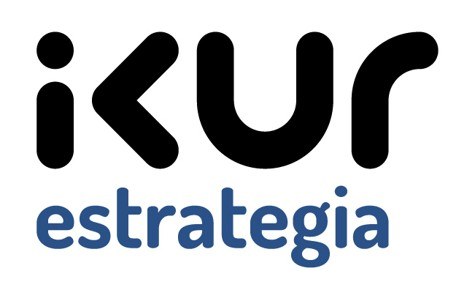PhD Student - Design of low energy neutron sources (Closed)
collar@uchicago.edu
francesc.monrabal@dipc.org
We are currently accepting applications for the above mentioned position. This is a unique opportunity for highly motivated students recently graduated from the University in Physics or related fields to gain research experience in one of DIPC’s high-profile research teams.
The role
Special-design sources of low-energy neutrons can be used to accurately mimic the signals expected from neutrinos via their elastic scattering off nuclei. Both neutral particles predominantly interact through this mechanism, but controlled neutron generation and detection in the laboratory is by far the less onerous option. Studies of neutrino detector response to the low-energy recoiling nuclei induced by these ad hoc neutron sources are of fundamental importance in a later interpretation of data, collected once the detector is exposed to intense neutrino sources (e.g., spallation sources, nuclear reactors). Specifically, the characterization of a material-specific “quenching factor” (QF, the fraction of nuclear recoil energy deposited in a detectable form) is of the utmost importance in searches for new physics via Coherent Elastic Neutrino-Nucleus Scattering (CEvNS), as deviations from the Standard Model and a misinterpreted QF can be easily mistaken for each other. The response of detector materials to sub-keV recoils is difficult to predict using theoretical models and varies from target to target. A careful experimental approach is in order.
We have used photo-nuclear radioactive sources as a convenient way to generate monochromatic neutrons capable of inducing a well-defined spectrum of low-energy nuclear recoils in CEvNS detectors. Recent work combines the use of photo-nuclear Sb-124/Be with an iron filter to generate a compact “neutron Howitzer” capable of creating a high-purity 24 keV neutron beam suitable for the production of sub-keV nuclear recoils in future CEvNS detector materials. When properly designed, such a Howitzer provides tabletop convenience in the experimenter’s laboratory and an absence of radioprotection concerns (negligible radiation levels external to its shielding). In combination with suitable backing detectors (i.e., used to tag the scattered neutron in coincidence with the recoils in the detector under test) based on Li-6, this “calibration facility” can be used to measure the response of our envisioned CEvNS targets (Ge, CsI, Xe, Ar, etc.) to discrete, predictable recoil energies in this difficult sub-keV regime. We will build an improved version of this Sb/Be+Fe source, one offering a higher neutron flux and better monochromaticity through design modifications to be permanently housed in the new DIPC neutrino laboratory under construction, enabling future use by local and European communities.
Desired background & competences
Degree on Physics or similar
Working conditions
- Contract duration: 1 year (possibility to extend up to 2 years)
- Estimated annual gross salary: Salary is commensurate with qualifications and consistent with our pay scales
- Target start date: 2025/08/01
We provide a highly stimulating research environment, and unique professional career development opportunities.
We offer and promote a diverse and inclusive environment and welcomes applicants regardless of age, disability, gender, nationality, ethnicity, religion, sexual orientation or gender identity.
The center
About the team
The Neutrino Group at the Donostia International Physics Center (DIPC) is dedicated to advancing fundamental research in neutrino physics, with a particular emphasis on developing innovative gaseous detector technologies. We are seeking a physicist with significant postdoctoral experience in detector R&D and expertise in neutrino experimentation to contribute to and lead projects focused on gaseous detectors. This position involves active participation in the design, development, and optimization of state-of-the-art detector components for ongoing and future neutrino experiments.
How to apply
Interested candidates should submit an updated CV and a brief statement of interest to the following application email below.
Reference letters are welcome but not indispensable.
The reference of the specific opening to which the candidate is applying should be stated in the subject line, and the application must be received before the application deadline.
Although candidates are welcome to contact the project supervisors to know further details about the proposed research activity, please be aware that the application will be evaluated only if it is submitted directly to the email address listed below as application email.
- Reference: 2025/40
- Application deadline: 2025/07/18
- Application email: jobs.research@dipc.org
Selection process
Applications received by the deadline will be evaluated by a Committee designed by the DIPC board on the basis of the following criteria:
- CV of the candidate (60%)
- Adequacy of the candidate’s scientific background to the project (20%)
- Reference letters (10%)
- Other: Diversity in gender, race, nationality, etc. (10%)
Evaluation results will be communicated to the candidates soon after. Positions will only be filled if qualified candidates are found.
The DIPC may revoke its decision if the candidate fails to join by the appointed time, in which case the position will be awarded to the candidate with the next highest score, provided it is above 50 (out of 100).
However, the selected candidate may keep the position if, in the opinion of the Selection Committee, the candidate duly justifies the reasons why he or she cannot join before the specified deadline, and as long as the project allows it.
![]()

